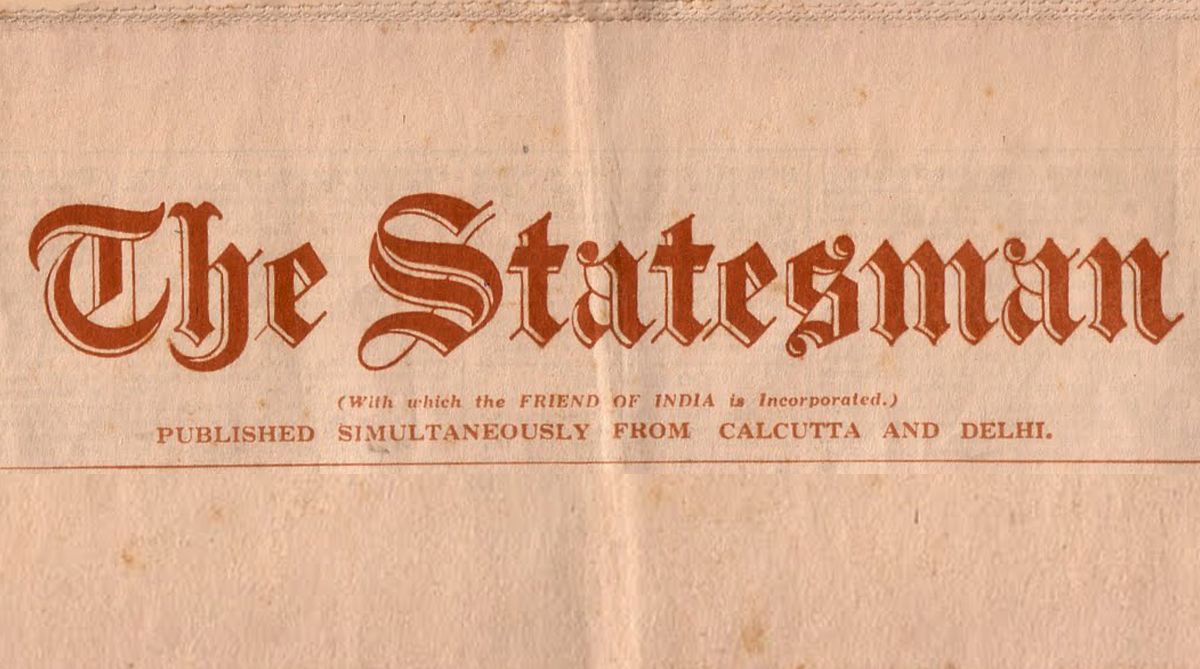A New Day, A New Dawn
There is a surprise for the readers. A special Poila Boishakh gift from none other than West Bengal chief minister Mamata Banerjee. Who has written a piece for this special edition.
On this day a century ago, these were some of the news items The Statesman readers got to read about India and the world.

OCCASIONAL NOTE
Sir Harvey Adamson has rendered a service to Burma in a valuable article contributed by him to the Bulletin of the Imperial Institute in which he describes the abundant resources of that country and indicates the rich opportunities which it offers for the profitable employment of capital. Official energy and private enterprise are both needed in Burma. It is the Government’s business to improve the railway and road communications in which Burma is deficient, and it is for private enterprise to exploit the natural resources thus brought within reach. Sir Harvey Adamson defends the Government of Burma from the charge that they are adverse to private enterprise.
The Government recognise it as a duty to reserve for the public a fair share of the profits earned from the exploitation of the products of the province, and to this principle there can be no objection. Clearly it is sound policy also to ensure that concessions shall be granted only to bona fide applicants who possess the expert knowledge and capital necessary to turn them to good account. With these reasonable conditions satisfied, the policy of the Burmese Government, as indicated by Sir Harvey Adamson, is to welcome and encourage the private enterprise and capital which are needed to convert potential into realised wealth.
Advertisement
ALL GOING WELL
Reuter learns that everything is going well for the Allies in the Western offensives. Distinct progress has been made on the whole length of the attacking fronts. Between Ypres and Dixmunde the Allies have progressed four to five miles since yesterday morning taking a total of 6,000 prisoners. The fall of Cambrai is now certain owing to the capture of several important points. Two hundred guns were captured in this sector. North of St. Quentin the Allies have gained an important footing on the eastern side of the underground canal near Bellicourt. Consequently the fall of St. Quentin is regarded as imminent. The enemy is apparently retiring from the Chemin-des-Dames. The French are steadily progressing in the Champagne despite strong resistance. The Allies’ attack between Ploegsteert and Dixmunde is under the supreme command of King Albert, with whom General Plumer is acting in conjunction.
ALLEGED WHEAT CORNER IN RANGOON
The Local Government has issued a notification calling upon all holders of wheat and atta to declare their holdings above twenty baskets of wheat or 1,000 pounds of atta and to supply particulars of all purchases and sales by them. The return is to be supplied to the Revenue Department within ten days from the 27th instant. The effect of this notification will be to determine whether the rumoured cornering of wheat and atta by two Rangoon traders is correct. These two men are credited with controlling practically all the available stocks, and with refusing to sell except at the enhanced rates which have compelled the bakers to double the price of bread. The Rice Commissioner’s notification that no fresh licences would be granted except to the Straits Settlements has not affected the market to any appreciable extent.
PROGRESS ON WHOLE FRONT
A French Eastern communiqué says: General progress was made on the whole front with important captures of prisoners and material. The Allies’ left wing broke down the resistance of the enemy still holding out between Lakes Pressa and Ochrida and north-west of Monastir and they passed Krushevo on a wide front, advancing to Kicevol. In the centre the Serbians who entered Veles at noon advanced on the front of Karabuniste-Nudduik to within twenty-three miles of Uskub. They also reached the region of Kotchana-Radovista and pushed cavalry in the Lehovo region to within six miles of the Bulgarian frontier. The Allies’ right wing occupies the Strumnitza region and is ascending the Strumnitza valley eastwards. Over three hundred guns have been captured since the beginning of the offensive.
AVIATORS PART
Our aeroplanes co-operated in every phase of Saturday’s operations. Patrols reconnoitering in the rear of the Germans lines day and night reported enemy movements. Bombs were dropped and machine-gun fire operated from an extremely low height on enemy troops, transport trains, and gun teams. Heavy casualties were inflicted. Twenty-two machines were destroyed during the day and three driven down out of control. Twenty-four of ours are missing. We dropped twenty-two tons of bombs during the day and thirty-four tons during the night many machines continuing their attacks against until dawn. All our night fliers returned.
Advertisement